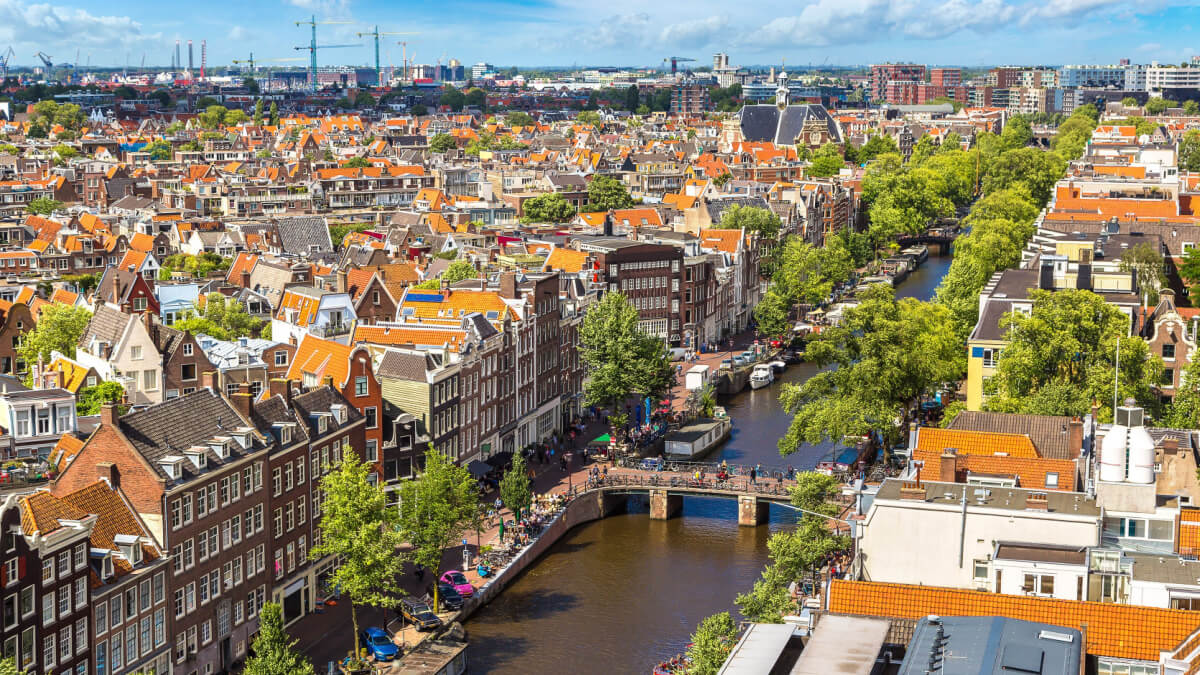The Netherlands offers a wealth of opportunities for those looking to work abroad. However, except for citizens of the European Economic Area (EEA) and Switzerland, everyone wishing to work in the Netherlands must obtain a work permit. Understanding the different types of permits and procedures is crucial before starting the process. In this comprehensive guide, we will explore the process of obtaining a work permit in the Netherlands, the types of permits available, and what you need to pay attention to throughout the process.
Types of Work Permits in the Netherlands

There are two main types of work permits in the Netherlands:
- Work Permit (Tewerkstellingsvergunning – TWV): This permit is typically required for short-term work (less than three months). The application for a TWV is generally submitted by the employer on behalf of the employee.
- Combined Residence and Work Permit (Gecombineerde Vergunning voor Verblijf en Arbeid – GVVA): This permit provides both residence and work authorization in a single application. Individuals intending to work for more than three months need to apply for this permit. In some cases, applicants may first need to obtain a Provisional Residence Permit (MVV) before applying for the GVVA.
Work Permit Application Process
The type of work permit you need depends on the duration of your stay and the purpose of your work in the Netherlands. Below is a detailed breakdown of the application process:
- Short-Term Work (Less Than Three Months): In this scenario, your employer must apply for a TWV on your behalf. This permit is usually for temporary employment opportunities such as seasonal work.
- Long-Term Work (More Than Three Months): For long-term employment, you will need to apply for a GVVA, which covers both residency and employment. The documents required for a GVVA application include:
- Valid passport
- Criminal record certificate (proving that you have not committed any criminal offenses)
- Proof of sufficient income, as applicants must meet a minimum income requirement
Who Is Eligible for a Work Permit in the Netherlands?
Eligibility for a work permit in the Netherlands varies based on the type of employment and sector. Here are some of the groups that can qualify:
- Intra-Company Transfers: Employees working at multinational companies who are transferred to a Dutch branch need a specific permit to work in the Netherlands.
- Highly Skilled Migrants: Specialists in fields such as IT, engineering, and healthcare who possess unique skills and expertise may qualify under the highly skilled migrant program.
- Researchers and Academics: Individuals working at universities or research institutions can apply for work permits under special schemes for academics.
- Start-up Founders and Entrepreneurs: Those who wish to establish an innovative business in the Netherlands can apply for a work permit under the start-up visa scheme.
- Interns and Trainees: Students or individuals looking for apprenticeship opportunities in the Netherlands can apply for a work permit to complete their internship or vocational training.
To determine if you qualify for a work permit, it’s advisable to contact the Dutch consulate or embassy.
Documents Required for GVVA (Residence and Work Permit)
In addition to personal documentation, your employer must also submit the following information to support your GVVA application:
- Commercial Register Information (KVK): The employer must provide a copy of their registration with the Dutch Chamber of Commerce.
- Proof of Recruitment Efforts in the EU: Employers must demonstrate that they have attempted to hire suitable candidates from within the EU before recruiting a non-EU worker.
- Salary Information: Employers are required to prove that they are offering an appropriate salary as per the standards set out by collective labor agreements (CAO).
- Accommodation Arrangements: The employer must arrange for your accommodation during your employment period in the Netherlands.
Application Fees and Costs
The application fee for a GVVA is currently €345. In addition to this, you may also incur other visa-related costs. It is important to plan your finances ahead to cover all necessary fees.
A critical reminder: you cannot legally work in the Netherlands on a tourist or short-stay visa. To work legally, you must hold the appropriate work permit.
Work Conditions and Employee Rights in the Netherlands
Employees in the Netherlands are protected by strict labor regulations regarding work hours, wages, and leave. Here are some key points:
- Working Hours: For individuals over 18, the maximum workday is 12 hours, and the maximum workweek is 60 hours. However, most collective labor agreements (CAO) specify a workweek of 36, 38, or 40 hours.
- Public Holidays and Paid Leave: Whether you work on public holidays depends on the contract with your employer or the collective labor agreement.
Cost of Living and Salaries in the Netherlands
If you plan to work in the Netherlands, understanding living costs and expected wages is vital. The minimum wage in the Netherlands is revised twice a year by the government. As of July 2022, the wages are:
- Monthly Minimum Wage (Age 21 and Over): €1,757
- Weekly Minimum Wage: €405
- Daily Minimum Wage: €81
The hourly minimum wage varies depending on weekly hours worked:
- 36-Hour Week: €11.3
- 38-Hour Week: €10.7
- 40-Hour Week: €10.1
Estimated Cost of Living
The cost of living in the Netherlands, particularly in urban areas, can be quite high. Here is a general overview:
- Monthly Costs for a Family of Four (Excluding Rent): €3,225
- Monthly Costs for a Single Person (Excluding Rent): €914
- One-Bedroom Apartment (City Center): €1,210
- One-Bedroom Apartment (Outside City Center): €964
- Three-Bedroom Apartment (City Center): €1,889
- Three-Bedroom Apartment (Outside City Center): €1,508
Conclusion and Recommendations
Obtaining a work permit and establishing a life in the Netherlands involves navigating various procedures and costs. To ensure a smooth transition, make sure to prepare all the required documents meticulously and collaborate closely with your employer. Additionally, gaining knowledge of work conditions and living costs will help you plan better for your time in the Netherlands.
For further information and guidance, visit the official website of the Dutch Immigration and Naturalisation Service (IND) or contact your local Dutch embassy or consulate.

